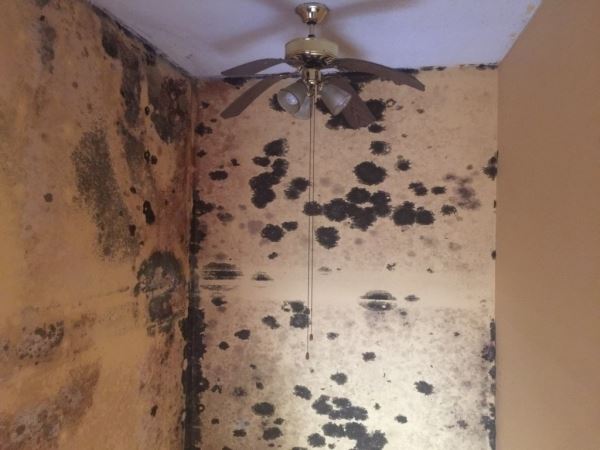The human nose is by no means the most powerful of its kind. Dogs, for example, have anywhere from 100 to 300 million scent receptors in their noses. Humans only possess 400 olfactory receptors, but still manage to distinguish (by best estimates) between 1 trillion different odors. So, while we may not have the tracking ability of bloodhounds, we can still use our noses to great effect, especially in the hunt for mold.
At FP Property Restoration, we use leading-edge thermal imaging technology to detect hidden sources of water damage in homes, businesses, and large multi-family properties. But when it comes to mold, you don’t always need the latest infrared tech. Your nose can be a handy tool for detecting growing dangers.
For your family and your employees, professional mold treatment is an absolute must. And at the end of the day, odor removal and mold remediation go hand in hand. Here’s how your nose can serve on the front line of mold detection in your home or business.
How to Use Your Nose in the Search for Mold
If you’ve experienced water, flood, or fire damage, don’t hesitate to call us at (888) 408-2335.
What Does Mold Smell Like?
Mold comes in all shapes, sizes, and colors, but a mold’s aroma is caused by certain compounds released into the air. These compounds are known as mVOCs (microbial volatile organic compounds).
At present, we don’t have an exact number on how many species of mold there are, but our best estimates indicate at least 120,000 different types. Obviously, with such a variety of molds, identifying them individually by smell can be tricky.
But since there’s no amount of acceptable mold within a home or business, any unusual or unpleasant aromas should set off alarm bells. Mold is often described as “musty” or “damp,” but what does that really mean? For reference, here are some similar aromas to the most common types of mold in a home:
- Old socks
- Body sweat
- Moldering wood
- Rich soil
- Stinky cheese
- Rotting food
- Wet dogs
- Decaying leaves
If you notice any of the following aromas without an obvious cause in your home or business, it may be time to contact the pros.
Are All Molds Dangerous?
In our homes and workplaces, no amount of mold is tolerable. While some molds are more dangerous than others, each poses a health risk indoors. Beyond simple odor control or odor elimination, there are serious health risks to permitting mold growth.
On average, mold falls into one of three categories:
Allergenic - Non-toxic but harmful to those with respiratory sensitivities (such as allergies and asthma)
Pathogenic - Dangerous to those with compromised immune systems
Toxigenic - Toxic molds that can lead to illness in healthy individuals
In essence, each type of mold poses serious risks and each requires the specialized knowledge and restoration know-how of a trusted mold remediation company. By using your nose to confirm the presence of mold, you’re giving your mold removal company a leg up in their remediation efforts.
Under no circumstances should you attempt to remove the mold yourself. Without mold testing or specialized protective equipment, you may be at even greater risk when interacting with mold in your home or business.
Follow Your Nose & Trust The Pros at FP Restoration
Mold remediation is not for the amateur or faint of heart. It’s a serious, science-based business that is dangerous enough to be regulated by some states. At FP Property Restoration, we have all applicable mold licenses and specialized training for our experienced mold remediation professionals.
After water, fire, or flood damage, mold is less a possibility and more of an inevitability. Don’t let harmful mold spread. Take action by calling FP Restoration today at (888) 408-2335.
Protect Your Family, Your Employees, & Your Property
Mold isn’t just dangerous to people. When left unchecked, mold can require serious structural repairs. In the interest of your safety, your structure, and your finances, call the mold remediation professionals if you suspect a certain aroma to be a sign of mold in your home or business. To learn more about our mold remediation and water damage restoration services, call us today at (888) 408-2335. We’re your go-to mold specialist in Tampa, Orlando, and beyond!


